Manchester Derby 2025: Can United’s New Era Break Guardiola’s Hold?
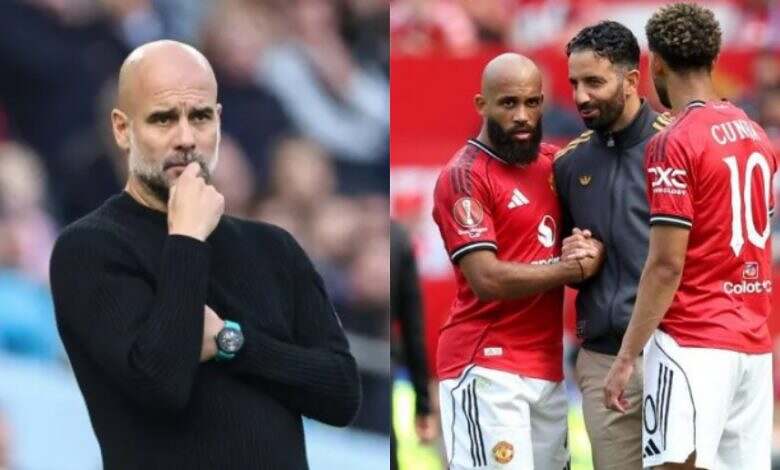
Etihad is full of noise. Rivalry that never sleeps. Two clubs with big histories and bigger egos. This one feels different.
You can imagine it in the way people talk about the week, the extra edge on social, the nervousness in City fans and the cautious optimism in United circles.
It is a derby, but there are new faces, new questions and a new manager at Old Trafford trying to change a culture.
Trending
Why this derby feels different this summer
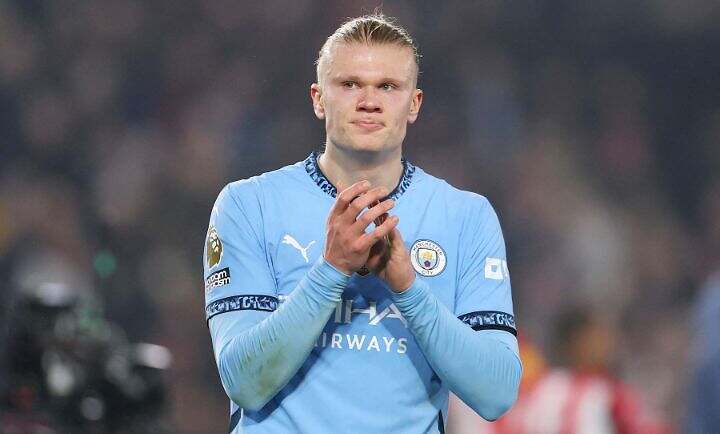
Derbies always have extra tension, but this one is heavier than usual. City have added big names and still have the spine of a team that has dominated England.
Yet they have started the season with stuttering results and public frustration.
Even Erling Haaland has called the start “not good enough” and said the derby is the perfect chance to restart, which tells you how worried they are.
On the other side, United are not the same Old Trafford gang from two, three years ago. Ruben Amorim has been brought in to reset things.
He arrived off real promise from Portugal and a brief buzz around his early work. That changes the script.
The manager’s style, his choices in recruitment and the fact that United have been willing to rip things up mean this derby is not just about bragging rights.
It is about narratives: stability versus change, a manager under pressure versus one trying to prove a point.
City’s slow start means extra pressure in the derby
Nobody expects Manchester City to fall apart. But they’ve looked less fluid than usual.
Recent league results showed defensive lapses and a team trying to re-find rhythm after a transfer window that shuffled players.
Big clubs go through spells like this. What matters now is how they respond.
Haaland didn’t hide his frustration. When your main striker comes out and says the start is “not good enough,” it tells you the mood inside the dressing room isn’t calm.
And while Pep Guardiola has built enough credit to handle situations like this, even he knows the pressure is there when results dip.
He has a long-term record that buys time, but every season has its tests and fans notice body language.
The worry is not that City cannot score, it is that they looked sloppy in transition and vulnerable on certain moments when opponents commit numbers forward.
There is also a new goalkeeper dynamic at City. Gianluigi Donnarumma joined from Paris Saint Germain at the end of the window, and the talk around him has added another subplot.
Donnarumma has said he is hungry to help and that competition is healthy, which is fair. Big signings mean big expectations. If City’s defense is not tight, a new keeper will be judged harshly in high pressure matches like this.
United’s transformation under Ruben Amorim
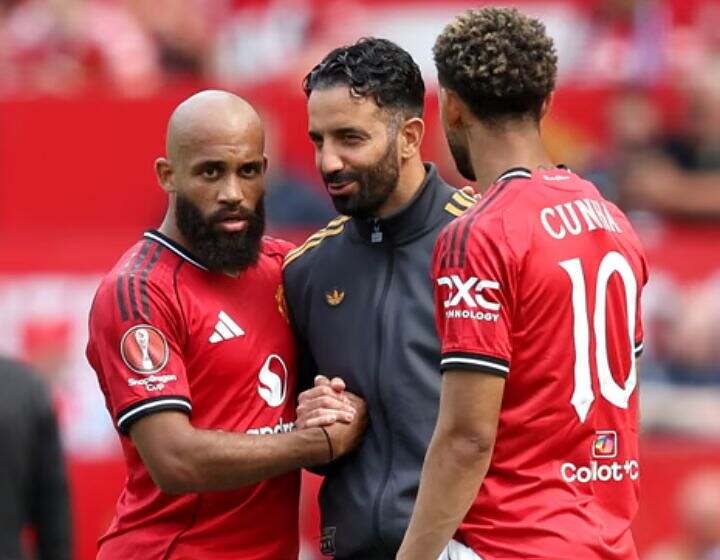
Ruben Amorim’s arrival at United is the headline change. He is not a safe appointment, he is an idea. He brings a set of tactical principles and a demand for structure.
His early weeks have been a mix of promising signs and reminders of the scale of the job. That is real life with a new manager, not an idealized story.
What has changed? There is more emphasis on compactness in defensive shape and quicker transitions.
Amorim likes teams that press in coordinated ways and that look to control midfield tempo.
That does not mean United have suddenly become a perfect machine. Far from it. But the players look like they have clearer roles.
When a team has been drifting, even small improvements feel big.
Recruitment is a part of the makeover. United spent to reinforce key areas and added players who fit Amorim’s blueprint.
Some of those signings are already adapting and are slotted into roles that make sense.
There are still gaps that is obvious, but the early identity shift matters because derbies are often won by teams with clearer game plans, not just better talent on paper. For many fans, seeing a pattern, even if rough, feels like progress.
Injury list and absences: who’s hurting more?
This derby will be influenced by who is available. United will be missing Diogo Dalot, Mason Mount and Matheus Cunha for the trip to the Etihad. That trio is not small.
Mount brings creativity and midfield balance, Cunha adds a forward option who presses and runs in behind, and Dalot is a reliable right side presence.
Their absences mean Amorim must adjust his setup and pick players ready for the heat of a derby.
City have their own worries. There were concerns over a couple of defensive names and the goalkeeper picture is in flux, with competition between Donnarumma and James Trafford.
City’s depth still looks superior on paper. They can plug in substitutes without losing continuity. United’s squad has improved but still looks a bit thinner in areas, especially with those absences.
The question is not only who is hurt now, but which side will suffer more if the match goes long and extra players are needed.
On balance, City have the deeper bench. That matters in tight fixtures late in games. If United’s injuries force tactical compromises, their ability to match City in the final 20 minutes may be jeopardized.
Still, absence does not equal defeat. Derbies are messy and emotional, and that volatility can help the underdog.
Why the midfield battle could decide the derby
Derbies are often decided in the center of the park. Whoever controls the midfield makes the other team uncomfortable, forces sideways passing and creates chances.
For City, Rodri typically sits deep and dictates phases, screening their defense and linking play. He is the pivot that makes City’s structure tick.
United’s midfield under Amorim looks like it could be built around disrupting that. Pressing in coordinated lines to stop clean build-up, and then breaking forward quickly, is the obvious plan.
Amorim could try to man-mark or congest the routes that feed the likes of Tijjani reijenders or Phil Foden, forcing City into errors or long balls.
When City have been slowed this season, it has been because opponents stepped into midfield with numbers and discipline.
Another angle is United’s pressing. If they can press in the right moments, they could force City into rushed passes. That is high-risk, because pressing gaps can be exploited if it is not perfectly timed.
But when done right, it offers one of the clearest ways for United to tilt the balance and create transitional chances. The midfield battle will be more than names.
It will be about timing, energy and whether Amorim’s structure can blunt City’s passing rhythm.
Donnarumma’s first real test comes in the derby
The goalkeepers are part of the storylines. City signed Donnarumma from PSG late in the window and he has been vocal about wanting to help.
Big signings come with pressure and a derby is a trial by fire. A new keeper shows little of his true self until the first high-stakes game. Fans and pundits will watch every cross and every save.
On United’s side the situation is also notable. Altay Bayindir has retained the starting spot despite the club signing Senne Lammens.
Ruben Amorim has explained that Lammens is for the present and the future but that experience matters now, so Bayindir keeps the gloves for this one.
That was a clear message from the manager: pick the player who gives the best immediate chance, even if a young signing looks exciting down the line.
There is also the psychological angle. Any keeper who steps into a derby must be mentally tough. Mistakes are amplified. If Donnarumma starts, expect him to be tested early.
If Trafford keeps his place for City, you have an interesting duel between an established younger keeper and a veteran with big game experience.
Either way, the goalkeepers will shape the flow more than many think. A single stop or error could swing momentum.
Attacking threats: Haaland, Foden, Buemo, Cunha
City still have the bite up front when they get it right, and Erling Haaland is the obvious danger.
He’s the one who finishes chances, makes defenders pay and forces teams to sit deeper. When Haaland’s moving well, you feel it in the spine of the defence.United’s attacking picture has changed a lot this summer.
Ruben Amorim brought in Bryan Mbeumo to add pace, directness and goals from the wide areas, and that signing matters because United need someone who can hurt City on the break and create overloads in the final third.
Mbeumo’s not just a name on a sheet, he’s a player who runs in behind, gets shots away and drags defenders out of position, which will help whatever striker United play.
Matheus Cunha was supposed to be a big part of United’s plan too. He’s the kind of forward who can link play, press defenders and finish chances, so his presence changes how City have to defend more runners into the box, more movement to distract centre-backs.
But Cunha is injured and won’t be available for this derby, which is a real blow for United because he’s one of the players who could have made this game messier for City.
But don’t expect tidy or pretty football. This will be fast moments and scrappy ones. City’s attackers look for the half-second to split lines while united’s new signings like Mbeumo will look to exploit that space on the counter.
Whoever times their runs better and who can finish the chances they get will decide the tone of the game.
Who could be the surprise hero?
Derbies have a habit of producing unexpected heroes. Think a full back scoring a late screamer or a fringe player putting in the shift that wins the game.
For City, a youth player or a rotating defender could be the surprise. For United, a squad player stepping into a different role might decide the game.
Look at Altay Bayindir at United. He has had to show leadership and composure. If he produces big saves, his name will be sung by away fans for weeks.
On City’s side, Donnarumma could be the unknown variable, a brilliant save or a shaky moment will tilt narratives. It is silly to predict an unknown, but often the game is decided by who adapts fastest to the derby’s rhythm.
Also consider set pieces and moments of individual brilliance. A free kick, a late corner scramble or a ref call can change everything.
Keep an eye on the players who take responsibility in tight moments, captains, senior pros and the ones who don’t panic.
Which of the manager is really under more pressure?
There is pressure on both managers. Guardiola needs to steady a team expected to win every week. Hints of doubt creep in when results slip and senior players voice frustration.
Conversely, Amorim needs results to prove this appointment is not a gamble gone wrong. He needs credibility fast. Both men have something to prove and that adds spice.
Crowd pressure at the Etihad will be intense. City fans demand results and will push. United players will feel the away atmosphere too.
Mental sharpness matters more than fancy tactics in a derby. The team that holds composure in the loudest moments usually finds a way to deliver.
Who feels the heat more? Probably Amorim. New manager, new methods and still building trust. He also knows that a big derby result can change how the season is seen.
For Guardiola, the expectation is stability. He has a longer leash, but not infinite. In short, his margin for error is smaller in terms of optics, while Amorim’s is smaller in terms of credibility.
What a win would mean for each club
A win for City would be a statement of recovery. It would push aside recent doubts, re-center their title challenge and soothe the anxious fans.
It would also show that the club can absorb change and still deliver under pressure.
For United, a win is seismic. It would be evidence that the new project is more than PR and would create genuine belief.
The fans would take it as proof that Amorim’s approach can thrive even in the moments that matter most.
A derby win could be the moment that define how the season is perceived for United: from rebuilding to realistic challenger.
This game isn’t just about bragging rights. The result can change the mood around both clubs. A big win lifts the dressing room, gives fans belief, and even makes opponents and pundits look at you differently.
In a tight league, psychological advantage matters. A derby victory in September can echo into spring if it changes how teams approach you.
Tactical details to keep an eye on
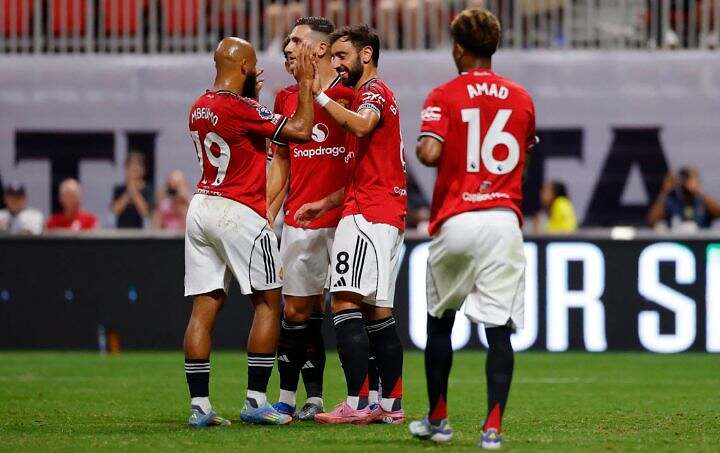
Here is a simple list of tactical things to watch during the match.
• How high United press in the first 20 minutes.
• Which full back covers for the attacking wing back when City overload.
• Whether City play through Rodri or bypass him early with direct balls.
• How United try to isolate Foden on the half space.
• Who takes responsibility for set pieces from both sides.
These small, practical details will determine whether the bigger plans are realized.
Examples from past derby surprises
Derbies live in stories. Think the quiet full back who scored a lucky winner or the goalkeeper who pulled off a string of saves and became a cult hero.
Those moments remind us that preparation matters, but luck and timing matter too. Every derby breeds an odd chapter. That is part of why we watch.
Why both teams have reasons to worry
Both teams have real strengths and real weaknesses. City have depth, a proven structure and match winners.
United have direction, spirit change under Amorim and a chance to unsettle City if the pressing and transitions click.
But the risk is that, city’s defensive shakiness can be punished. United’s thinness in certain positions, especially with the injuries, can be exposed over 90 minutes. A red card, a penalty or an injury substitution could tilt everything.
Prediction time means acknowledging uncertainty. Derbies are famously unpredictable and often ugly in play. But patterns matter. United will try to disrupt, City will try to control. Whoever imposes their pattern wins.
In my own view, i think the game ends 2-1 to Manchester City. Why? City have the edge in depth and in decisive individual quality.
But United’s pressing and counter threat will create real problems for City, and United will score.
It will be close, noisy and decided by a late moment or a single lapse. If United get a win, it will feel like the season changed. If City win, they will breathe easier and the early doubts will quieten for now.
If you are going to the match, expect heavy policing of the Etihad area, bring layers because September evenings in Manchester are cold and bring patience.
But If you are watching at home, mute your feed when the pundits shout and enjoy the show. Derbies are messy, raw and sometimes ugly. They are also the most honest football gives us.
Do you think Amorim’s new United can really rattle City at the Etihad, or will Pep’s side remind everyone who runs Manchester? Drop your score prediction in the comments and let’s see who gets it right.

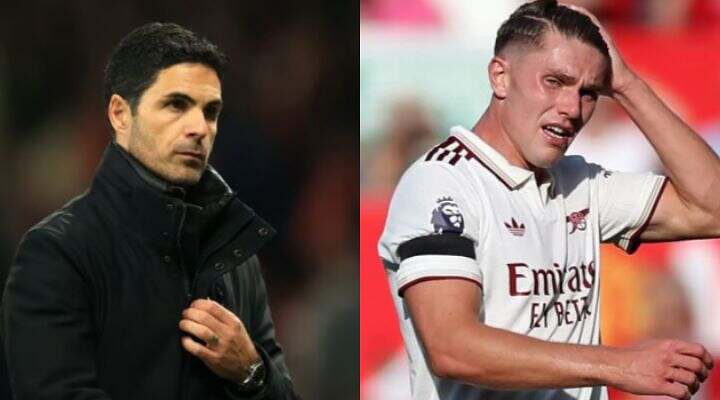
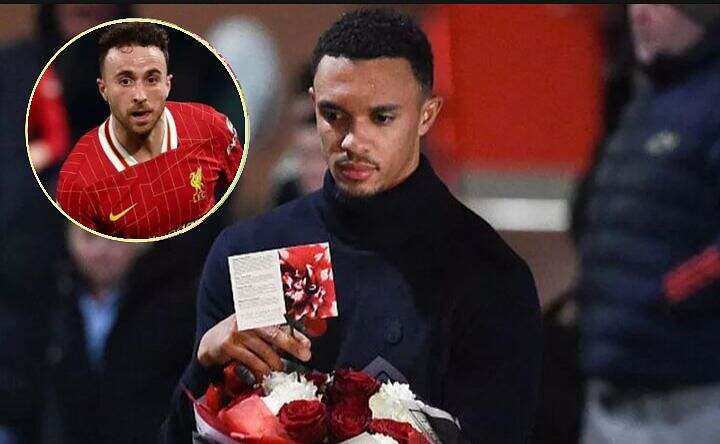
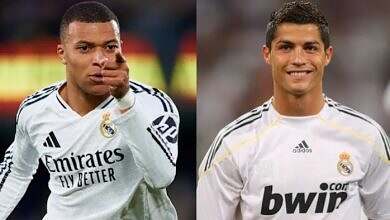
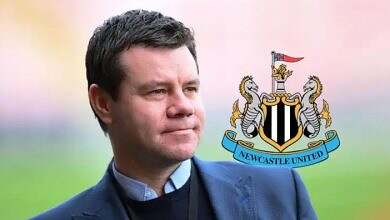
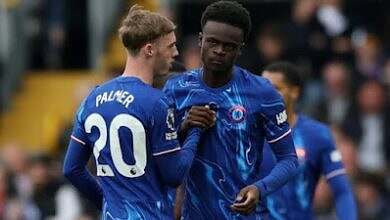
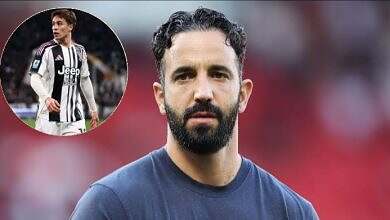
🔥